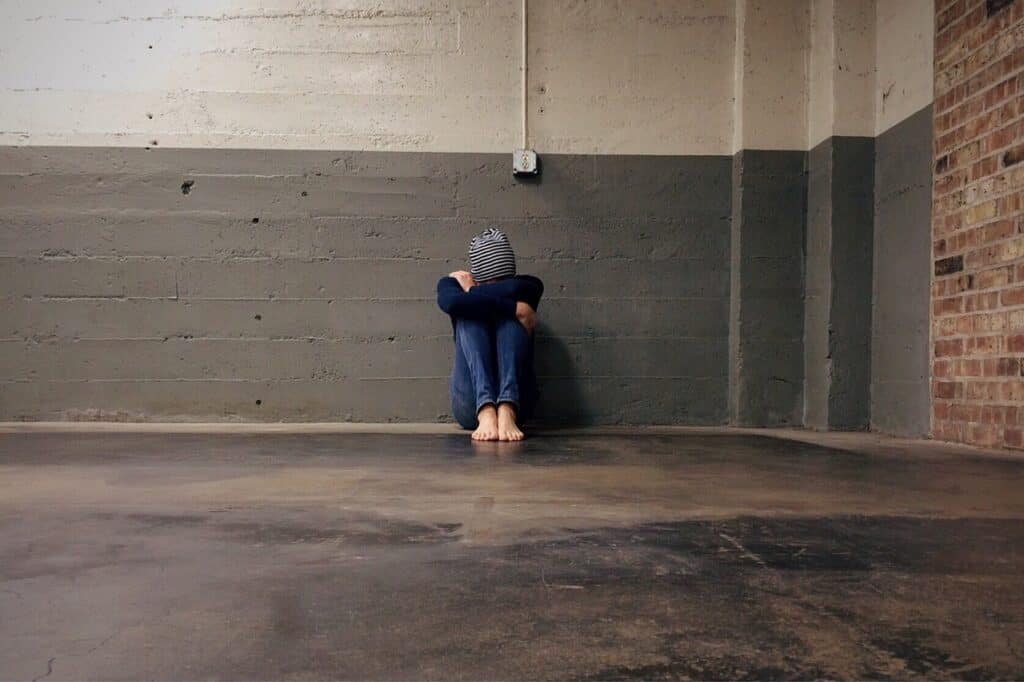For many people new to recovery, there can be a lot of positive and negative emotions. Keeping a positive attitude can be hard when a person first gets sober. The good news is it gets better the longer you stay sober! Learning to live life on life’s terms is something you can work on for a day at a time.
One thing you can start working on today is a positive attitude. Your attitude can affect everything you do. Nobody has a complete attitude breakthrough overnight, but a day at a time, you will grow. As a person in recovery, you will begin to gather some hope and realize your capacity for resilience. You’re a strong human being, and you’ve been through a lot!
Accepting Yourself and your Circumstances
A positive attitude is easier to achieve once you realize that you need help, but you’ve found the way out! You’re powerless over your addiction. One of the first things you’ll work on when you get sober is accepting that you have an addiction. Once you’ve done that, you’ll start to learn to accept the other circumstances (and even other people!) in life for what they are.
Everything you do in recovery can be done a day at a time. You don’t have to become perfect or right all your wrongs overnight. You can accept that you have a problem and that you need help. Willingness will help you stay sober, so you no longer have to struggle through life sick from your addiction.
When you start treatment or go to 12-step meetings, you’ll find you’re not alone in your experiences. Addiction is a disease that can affect anyone from any background. It’s not a moral failure but a condition that affects the body, brain, and spirit.
Finding An Attitude of Gratitude
Finding gratitude can be hard when you first get sober, especially if you have many problems to face. An attitude of gratitude will probably come easier as you stay sober longer. Every day you stay sober is something you can be grateful for!
One way you can start to feel better about your future is to create a gratitude list. Every day, write a list of things you are grateful for. Even if it is something as simple as a juicy orange with your lunch, keeping track of the good things in life is essential. Also, every day sober is something you can add to that list!
Keeping a journal can also help you keep track of your victories in life. Every time you accomplish something you’re proud of, start to write it down.
Life changes quickly! Try to remember to take things a day at a time. If you’re having a bad day, there’s always tomorrow! Read back some of your lists and journal entries when you’re having a bad day.
Getting Help for Substance Use
Are you ready to reclaim your life from addiction? We can help you get sober and being the steps to healing and meaningful life. We’re here to help you; just reach out. You can contact us to learn about your options at 855-976-1495.
Benzodiazepines are a prescription medication that many people take legally. They are also highly addictive and difficult to quit using because of the withdrawal symptoms they can cause. They are also commonly prescribed for anxiety or to help somebody physically relax. Some doctors will even prescribe it for rare nerve pain or headache management.
Benzos have been considered everyday medications since the 1990s, but many people are still unaware of the dangers of using these common prescription drugs. Medicines that belong in this class include Klonopin, Valium, and Xanax.
Symptoms of Addiction to Benzodiazepines
Most people who are addicted to drugs show symptoms of their addiction. Sometimes it is subtle, such as canceling plans with family or friends. As it progresses, however, the addicted person will have trouble managing their life. Their addiction may put their relationships, finances, and freedom at risk. It’s not uncommon for people who abuse drugs to break the law to get more of their drug of choice.
People who abuse drugs or alcohol, including benzodiazepines, will keep a stash of the drugs in a safe place. You might find half-pills or bottles of prescriptions that don’t belong to them. They may try to get a prescription by lying to their doctor or going to a new doctor.
Finally, a person who is addicted to drugs will take more of the drug than needed. They will display addictive behavior like trying to ration or get ahold of more of their drug to get the “fix” they need.
An addicted person will go to desperate lengths to get their drug of choice.
Benzo Addiction is Dangerous
Benzo addiction can be deadly. When a person is abusing benzodiazepines, they are at risk for overdose because they breathe more slowly the more drug they have in their body. Some people drink or use opioids alongside benzo, which can cause a deadly reaction or overdose.
Increasingly, coroners are finding that people who have overdosed on drugs have a combination of benzos and opioids in their body at the same time.
People who try to quit abusing benzodiazepines can experience severe withdrawal symptoms. For most people, clinical detox is recommended before drug rehabilitation starts.
Getting Help for Addiction
Addiction, also called substance use disorder, is a disease of the brain that can cause a lot of pain in a person’s life. You don’t have to live that way anymore! Our offices are open and welcome new clients! We can help answer questions about our program at 855-976-1495.
Addiction is a topic often discussed in the media, but it is still the subject of many stereotypes. It’s easy to imagine heroin addicts and homeless people addicted to alcohol. If you or somebody you love has a problem with alcohol or drugs, you’re not alone. You may wonder if a person can be addicted if they don’t meet your preconceived notions of addiction or alcoholism. There are a lot of myths about addiction. A lot of these myths can be harmful and keep people from getting the help they deserve. If you don’t fit a myth, you may wonder if you’re truly addicted or not.
Here are five significant myths about addiction:
- Myth 1: You have to hit a really low bottom to be considered an addict. Many people imagine a person addicted to drugs as being homeless or somehow derelict. While there are people who hit extreme “bottoms” with their drug use, there are also countless people who don’t fit that image. People with substance use disorders come from pretty much all walks of life. Many people manage to hold down jobs or responsibilities but are quite miserable because of their addiction.
- Myth 2: Addiction is a choice. Addiction is a disease that no one chooses. Many factors probably make some people more likely to be addicted than others. There is still a lot of research out there about addiction that needs to be discovered, but this is one of the most common myths about addiction. Studies show that some people experiment with substances, while others find substances impossible to put down.
- Myth 3: Pills aren’t a problem. Some people take drugs like Adderall for ADHD, but other people abuse them. Pills can be an addiction, even if a doctor continues to write you a prescription for them. Drugs like Klonopin, a benzodiazepine, can be highly addictive.
- Myth 4: Binge drinking isn’t addictive behavior. Binge drinking can involve drinking until you’re blackout drunk. This kind of lifestyle can place you in danger of alcohol poisoning and leave you to risky, scary behavior. What’s even worse is that you won’t remember it in the morning.
- Myth 5: I’m too young to be addicted. Young people can have substance use disorders, just like adults can. You can be an alcoholic and be drinking age or become addicted to marijuana in a state where pot is legal. Addiction can be to anything that alters your mood.
If you feel bad about your drinking or drug use, you probably have a problem with a substance. If your use of substances is causing you legal, physical, or relationship problems, there’s a good chance you will benefit from sobriety. If you’re having trouble getting sober on your own, then there is help available to you. You don’t have to face addiction on your own.
Getting Help, Getting Sober
We offer several services, including intervention services, to help you and your family recover from addiction. You can recover, and the great news is that help is available every step of the way. The first step is picking up the phone to learn more about how we can help. We’re here to answer any questions you may have. Contact us at 855-409-8869 to learn more about our services and how we can help.
Almost any drug that can cause psychological effects such as euphoria can be abused. People can become both psychologically and physically addicted to drugs or abuse, including alcohol. Addiction is a disease that does not discriminate. People from all walks of life can and do develop addictions to all kinds of drugs. Drug addiction is a massive problem in the United States, especially due to the opioid epidemic.
The good news is that people can also get clean and sober no matter what type or quantity of drugs they use.
Understanding Addiction
Drugs like opioids and methamphetamine are considered highly addictive. Addiction takes place because the continued use of these drugs causes physical changes in the brain. These changes make a person develop a tolerance to the drug, requiring more of it to get the same effects.
Not only do these drugs cause withdrawal effects, but they also cause a person to be more compulsive and do things they usually wouldn’t do, all in the pursuit of a high. Most people addicted to drugs or alcohol display addictive behavior. They may sell possessions, try to get illegal prescriptions, or even try a more potent drug to get the relief they’re seeking.
Withdrawal effects like cramps, shaking, nausea, and bone pain often occur if a person goes without their drug of choice for some time.
The Most Dangerous Drugs
Which drugs are the most dangerous? Drugs that are highly addictive and can cause overdose deaths would be a the top of the list when it comes to danger. However, almost any drug can cause a person to do illegal, dangerous, or out of character.
Here are some of the most dangerous drugs:
- Opioids like Oxycontin, Vicoden, heroin, opium, and fentanyl are all dangerous. Fentanyl, in recent years, has been the cause of thousands of overdose deaths because of its potency. Sometimes street drugs are laced with fentanyl without the user’s knowledge.
- Cocaine and crack can cause users to act erratically, be paranoid, or violent. They both can damage the heart, while crack can cause damage to the lungs as well. Some people who overdose experience seizures or heart attacks.
- Methamphetamine is an intense, highly addictive drug that can cause hallucinations and extreme paranoia when a user has stayed awake for days. Addiction devastates the body, causing skin problems, rotten teeth, and weakening the heart.
- Benzodiazepines such as Klonapin are usually prescribed to help people with anxiety or muscle tightness. People who abuse the drug can become physically addicted and develop irregular heartbeat, lung problems, and depression. Combined with other drugs or medications, there is a potential for fatal overdoses.
- Alcohol addiction is one of the most prevalent addictions in the world. Alcohol overdose can cause death. People who combine alcohol with other substances are more likely to overdose or cause serious injuries.
Addiction isn’t a choice. Some people are more prone to substance use disorders than others. When a person is addicted to a drug, trying to stop using it can be a constant struggle. Physical withdrawal symptoms are often intense and sometimes even dangerous. For highly addictive drugs, a clinical detox is usually required. Some people also need Medication-Assisted Treatment to help them decrease cravings and begin the journey to recovery. Detox is an important starting point to help people get clean in a safe, comfortable environment.
Any drug that can be abused has the potential to become an addiction. If you’re experiencing a substance use disorder, help is available.
Getting Help
Do you or a loved one have a problem with substance use? Are you sick and tired of being sick and tired? You’re not alone! We can help you get sober in a safe, professional, inspiring environment. Even during the COVID-19 crisis, we’re here to help you.
Call us at 855-409-8869 for more information on our recovery services.
In early recovery, it’s a great time to start setting new patterns to help shape your new life trajectory. Getting better sleep, building deeper connections with people, and learning new coping skills are all critical. Exercise, too, can make an essential difference for newly sober people.
Health Benefits of Exercise
Exercise can do a lot of essential things for your physical health. It can help you loosen up when you’re feeling the bodily effects of stress. Regular aerobic exercise, including walking, can help keep your blood pressure in check. And people who exercise tend to sleep better.
The more you sweat, the easier it is to flush any toxins from your body. People who detox are flushing toxins for months (and up to a year and a half) after detoxing from drugs. Exercise can help you move these toxins out of your body more quickly.
Mental Health and Fitness
You’ve probably heard by now that exercise is an integral part of maintaining your mental health. In the era of COVID-19, it’s a little more challenging to do but still tremendously useful when it comes to banishing negative moods or alleviating your anxiety. Luckily, there are now online fitness classes and plenty of videos you can use to establish a daily routine. (Check Evenbrite or Youtube.)
According to the National Library of Medicine, exercise can perform a variety of important functions to improve your mental wellness. Aerobic exercises improve symptoms of depression, reduce anxiety, and improve cognition. Many people who describe a “brain fog” when they’re experiencing mental health issues will explain how exercise helps them think more clearly and make more rational decisions.
Getting Help for Addiction
Addiction is a disorder that can affect the mind, body, and spirit, yet recovery is possible. You’re never alone! We help people from all walks of life begin the journey to recovery. Learn more about our programs and how we can help by calling us at 855-976-1495
.






